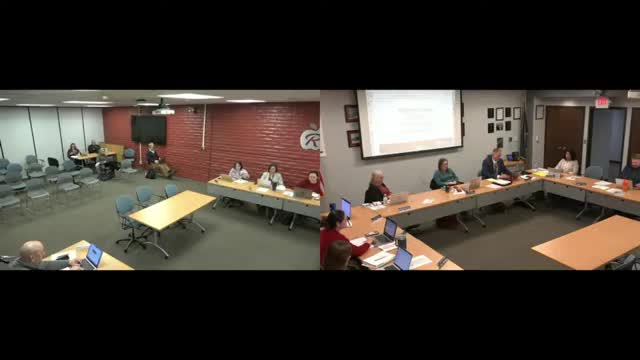Ralston board reviews tech plan: live translation, AI pilots and strengthened cybersecurity
Get AI-powered insights, summaries, and transcripts
Subscribe
Summary
District leaders outlined a multi‑year technology plan that includes live classroom translation, Clever single sign‑on and a pilot of Google’s Gemini Plus for staff, along with network rebuilds and expanded cybersecurity training.
District technology and teaching staff told the Ralston board on Nov. 10 that the district has expanded digital access and safety tools and expects further changes over the coming year.
Jason Buckingham and IT staff said the district uses Clever for single sign‑on that lets teachers and substitutes access curriculum and that substitute badges now grant temporary classroom access. The district has installed classroom audio units that can transcribe lessons and provide live translation to students in their chosen language via a web code, headphones and on-screen transcripts. "They can put their headphones on, and they can listen to their teacher in live action… and they can see it in the language of their choice," a technology presenter said.
The district recently moved to paid Google Workspace tiers (Gemini Plus) for staff, allowing a small pilot of AI tools for lesson synthesis and notebook‑style local document models. Staff said the pilot is limited and data will remain inside district accounts and firewalls. IT also described a recent, large network rebuild across schools (access points moved into classrooms), deployment of nearly 400 cameras, a new ticketing system for help requests and an ongoing paper‑use audit tied to the upcoming 1:1 iPad rollout expected after Christmas.
On cybersecurity, the district runs phishing‑simulation training and reported a low failure rate in the latest round (under 3%), compared with regional peers at 12–14 percent; IT staff underscored continued outreach with the Nebraska Department of Education and state cybersecurity groups while noting the state has not yet funded cybersecurity needs.
Why it matters: The translation and transcription tools are intended to improve access for multilingual students; the Gemini Plus pilot aims to give staff controlled AI tooling for lesson planning while keeping data in district systems. Cybersecurity remains an operational priority as the district modernizes infrastructure.
Next steps: staff will continue device procurement and staff training and report back on pilot outcomes and any recommended policy changes for AI and data governance.
